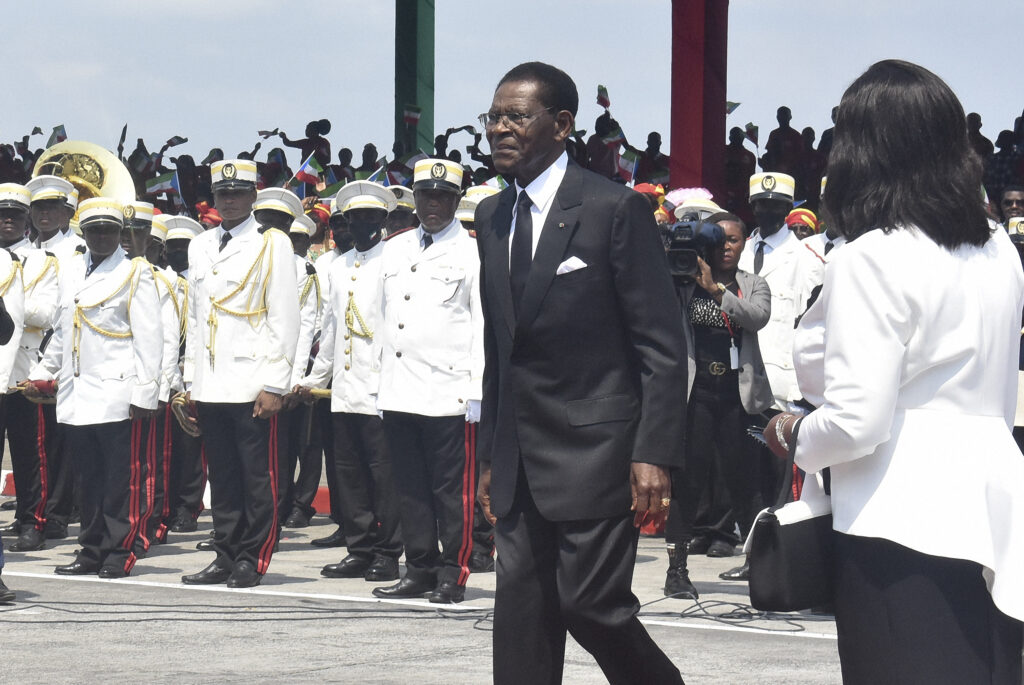Authorities have never announced their deployment and they do not appear in official photographs — but Russian mercenaries in combat fatigues are a daily sight in Equatorial Guinea’s capital Malabo.Their presence, and the lack of transparency about their mission, has annoyed some citizens in this central African country on the Atlantic coast, stricken by poverty and joblessness.Locals in private question the motives for the hiring of the Russians in this former Spanish colony, where freedom of expression is limited under autocrat Teodoro Obiang Nguema, the nation’s ruler for the past 45 years.The mercenaries are “an additional economic burden, of no benefit to the national treasury — their presence offers no guarantee of well-being for the population,” complains Baril, a man in his 40s, in the living room of his Malabo home under construction.White men wearing military fatigues, sometimes bearing Russian insignia, appeared in August 2024 in the country — one of several African nations where Russia has increased its presence in recent years.They can generally be seen near the presidential palace in Malabo, on the seafront, during the changing of the guard.Juvenal Osuan Ondo Mba, a telecoms engineer in his 50s from a poor Malabo district, cannot understand it.”Wherever they come from, Equatorial Guinea is not at war and the presence of Russian, or other, mercenaries is of no benefit to the population,” he said.”We also have an army — never a year goes by without the army and state security forces recruiting. Why do we need mercenaries?”That question has also been troubling parliament — and the country’s own military — though nobody dares raise it in public.Lawyer Tutu Alicante of US-based rights group EG-Justice called the mercenaries’ presence “extremely disturbing”.”The government is obliged to inform the people of the presence of foreign soldiers or mercenaries on Equatorial Guinean territory — why they are there, how long they will stay there, how or how much money they are paid, et cetera,” he told AFP by telephone.- Official visits -For the moment, official information has been limited to a handful of vague press releases.Obiang has visited Russia three times in the past two years and Russia’s deputy defence minister Yunus-Bek Yevkurov held meetings in Malabo in December and March last year.According to experts, Yevkurov was tasked with rekindling the African networks of the powerful Russian mercenary group Wagner in the north African Sahel desert region, after the death of its former leader Yevgeny Prigozhin in August 2023.Official press releases in Equatorial Guinea mention neither Wagner nor the so-called “Africa Corps” set up by Yevkurov in its place.Military agreements signed in 2024 mentioned the sending of Russian “instructors” for military training.But no such training has been held since the arrival of the first Russian contingent in August 2024, according to military sources.Since the deployment of a second contingent in mid-September, foreign paramilitaries have continued to arrive along with equipment, weapons and vehicles.Their current number is estimated at around 300, according to security sources contacted by AFP.They are responsible, along with Israeli or Ugandan soldiers, for the personal security of the president, his wife and their son, vice-president Teodoro Nguema Obiang, according to sources consulted by AFP in Malabo.Political analysts said this indicates that the head of state is nervous about the army, given the risk of coups like the one he himself carried out against his predecessor and uncle, Macias Nguema Biyogo, in August 1979.Using security personnel from other countries appears to be a means of limiting that risk, one military strategist told AFP on condition of anonymity.Online newspaper Diario Rombe, based in Spain and close to Equatorial Guinea’s exiled opposition, said the military agreements include a recruitment operation for Russia’s offensive in Ukraine.The defence ministry last month published a notice, seen by AFP, proposing “training scholarships offered by the Russian Federation” for young people from Equatorial Guinea.”This is about recruiting citizens without military experience to sacrifice in exchange for the presence of Russian mercenaries in Equatorial Guinea,” wrote Diario Rombe.Equatorial Guinea officials would not comment on the accusation.
